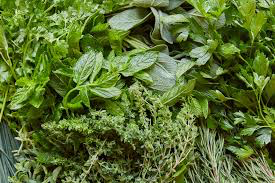Amid the bustling atmosphere of Sango Ota market in Ado-Odo/Ota Local Government Area of Ogun State, Mrs. Ayoni Oladipo proudly displays her herbal remedies. “The blend of orthodox and traditional medicine could greatly benefit Nigerians,” she asserts, as she discusses the various ailments her products can address.
Oladipo, a 41-year-old native of Osogbo, has garnered a weekly clientele not just from surrounding areas but also from distant cities like Lagos, Ibadan, and Abuja, thanks to her mother-taught expertise in herbal concoctions. Her shop is a beacon of traditional healing, where she offers natural solutions for diarrhea, malaria, back pains, and general weakness, as she recounted to Saturday PUNCH with an infectious smile.
Skepticism about herbal medicine is common, but Oladipo recounts success stories, such as the recovery of ‘Baba Mighty,’ a white man who suffered a stroke, and the case of a woman whose ceased menses resumed after using Oladipo’s herbal mix, leading to the conception of twins. She also boasts of herbal remedies for sexual dysfunctions, though she notes spiritual afflictions are beyond her scope.
With prices ranging from N3,000 to N5,000, Oladipo attributes the cost to economic inflation but maintains that her herbs are cost-effective and long-lasting compared to Western medicine.
Mrs. Kemisola Banwo, another herbal practitioner from Ofada, confirms the increasing acceptance of traditional medicine, emphasizing that it’s now sought after by educated Nigerians and acknowledged by the government.
The economic incentive for choosing herbal medicine has grown as Nigeria faces steep drug prices. According to the International Drug Centre, pharmaceutical imports could surpass N900bn in 2024 due to the naira’s depreciation. Big pharmaceutical firms like GlaxoSmithKline and Sanofi have announced shifts to third-party distribution models in Nigeria, further straining the drug market.
Consequently, more Nigerians, like Ibadan-based chef Taiwo Divine and Lagos marketer Treasure Etteh, are turning to traditional remedies for their affordability and accessibility.
Despite Nigeria’s rich biodiversity and potential in herbal medicine, experts note that the country has yet to fully tap into this lucrative market. Reports suggest that the global traditional medicine market, dominated by countries like China and India, could reach $417.99bn by 2033.
The World Health Organization points out that while a significant portion of the global population relies on herbal medicine for primary healthcare, the potential for local research, manufacturing, and commercialization in countries like Nigeria remains largely unexplored.
Emmanuel Ibekwe, a Lagos herbal mixture trader, observes an uptick in demand for both local and imported Chinese herbal products, suggesting the need for Nigeria to invest in and standardize its herbal medicine industry for global appeal and economic growth.
As this alternative healthcare sector flourishes due to economic pressures, traditional healers like Oladipo and Banwo continue to serve the health needs of their communities while advocating for the integration of herbal solutions into mainstream healthcare.











